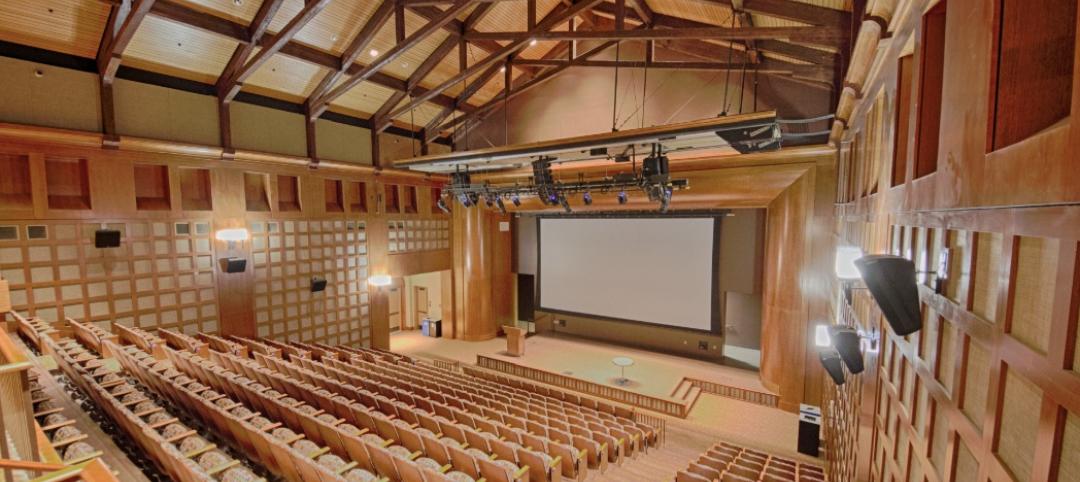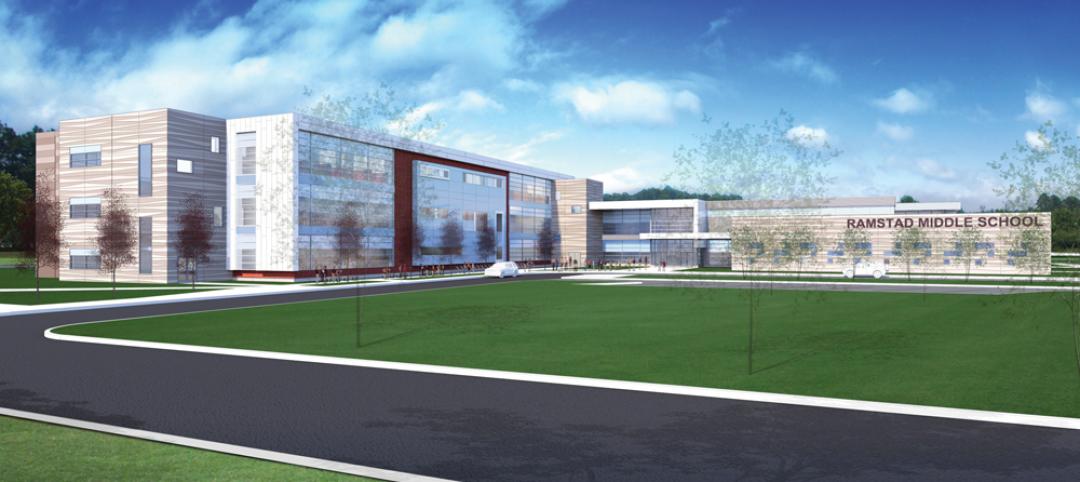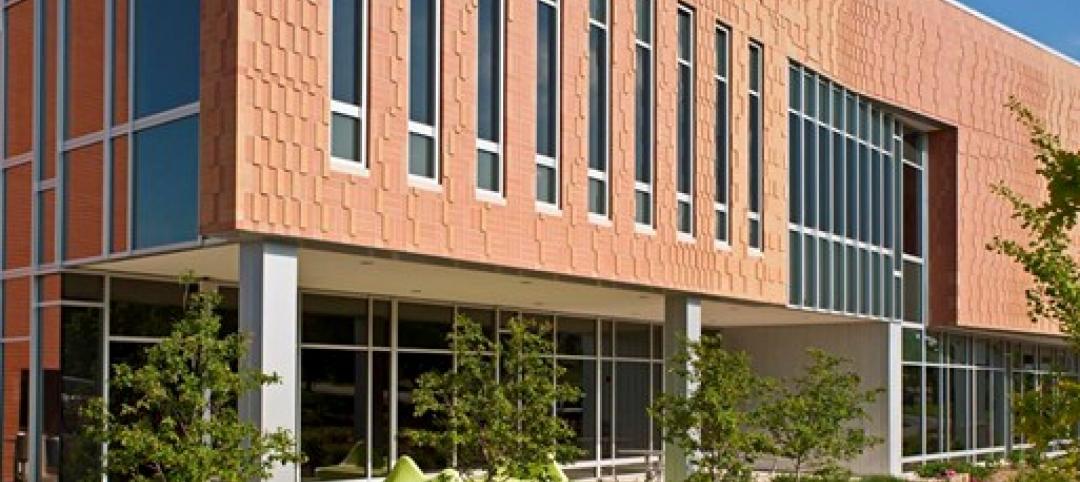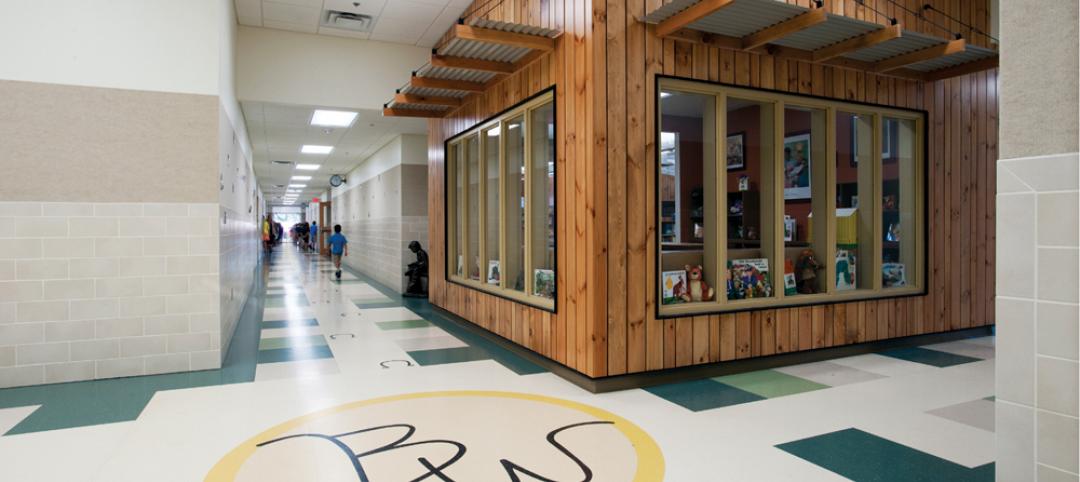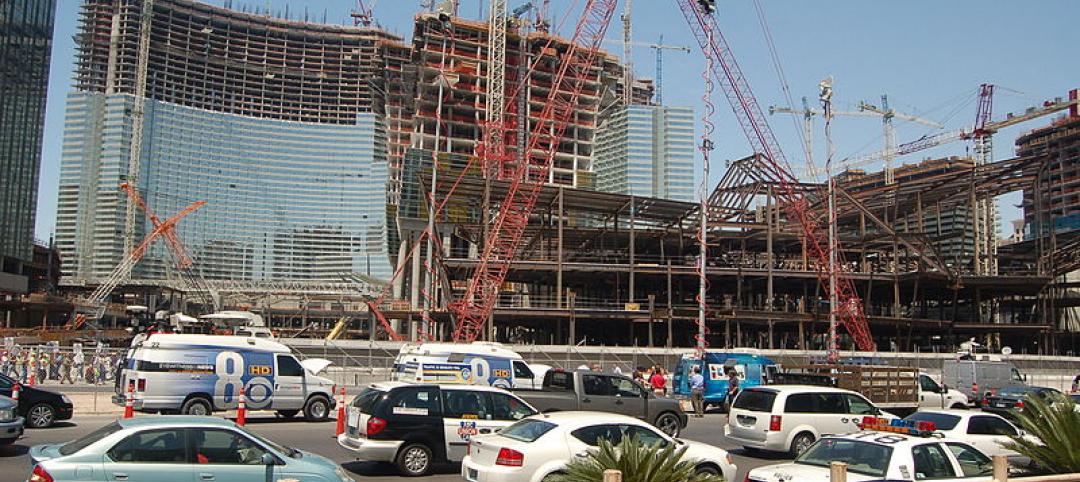The Howard and Irene Levine Senior Community, designed by KFA Architecture for Mercy Housing of California, provides badly needed housing for Los Angeles veterans and low-income seniors. The six-story, 69,300 sf building in West Los Angeles was constructed on a city-owned, former LADOT parking lot—a large area of underutilized space. It was designed to replace public parking for neighborhood merchants and a synagogue, as well as for tenants within a 73-car underground garage.
Above the parking levels, the structure provides 48 units of housing for homeless senior veterans and low-income seniors earning at or below 30 percent and 60 percent of the area median income. Rents range between $456 and $976 per month.
The building sports open corridors, allowing for natural ventilation and light into the interior. A large courtyard at the third-floor level provides a central gathering space with views of the Hollywood Hills. The courtyard is surrounded by a community room, an exercise room, and on-site support and service offices led by New Directions for Veterans.
Smaller terraces throughout the building offer quieter seating nooks. The roof deck is adorned with community garden planters and informal seating. Recessed entry doors in alcoves provide a sense of identity for each unit. The Community is walkable and close to transit, markets, cafes, clinics, and other community services. The project compliments the surrounding neighborhood’s fabric.

Strategically Designed for Seniors and Vets
“Our design team viewed this project as an opportunity to provide a healthy and social environment for seniors, with varied spaces that foster different levels of privacy and community interaction,” said KFA Senior Associate, Kristyn Cosgrove, AIA.
All units are designed for accessibility and mobility. All residents have access to a laundry room on their floor. The series of smaller outdoor spaces allow opportunities for people to gather outside in intimate groups. Rooftop solar panels and gray water harvesting for irrigation contribute to a projected LEED Gold rating.
Owner and/or developer: Mercy Housing California
Design architect: KFA Architecture
Architect of record: KFA Architecture
Mechanical & Plumbing engineer: Hellman & Lober
Electrical Engineer: OMB Electrical Engineers
Structural engineer: Englekirk
General contractor: Dreyfuss Construction
Construction Manager: AMJ Construction Management


Related Stories
| Jul 18, 2014
Top Engineering/Architecture Firms [2014 Giants 300 Report]
Jacobs, AECOM, Parsons Brinckerhoff top Building Design+Construction's 2014 ranking of the largest engineering/architecture firms in the United States.
| Jul 18, 2014
Top Engineering Firms [2014 Giants 300 Report]
Fluor, Arup, Day & Zimmermann top Building Design+Construction's 2014 ranking of the largest engineering firms in the United States.
| Jul 18, 2014
Top Architecture Firms [2014 Giants 300 Report]
Gensler, Perkins+Will, NBBJ top Building Design+Construction's 2014 ranking of the largest architecture firms in the United States.
| Jul 18, 2014
2014 Giants 300 Report
Building Design+Construction magazine's annual ranking the nation's largest architecture, engineering, and construction firms in the U.S.
| Jul 7, 2014
7 emerging design trends in brick buildings
From wild architectural shapes to unique color blends and pattern arrangements, these projects demonstrate the design possibilities of brick.
| Jul 2, 2014
Emerging trends in commercial flooring
Rectangular tiles, digital graphic applications, the resurgence of terrazzo, and product transparency headline today’s commercial flooring trends.
| Jun 30, 2014
Research finds continued growth of design-build throughout United States
New research findings indicate that for the first time more than half of projects above $10 million are being completed through design-build project delivery.
| Jun 18, 2014
Arup uses 3D printing to fabricate one-of-a-kind structural steel components
The firm's research shows that 3D printing has the potential to reduce costs, cut waste, and slash the carbon footprint of the construction sector.
| Jun 12, 2014
Austrian university develops 'inflatable' concrete dome method
Constructing a concrete dome is a costly process, but this may change soon. A team from the Vienna University of Technology has developed a method that allows concrete domes to form with the use of air and steel cables instead of expensive, timber supporting structures.
| May 29, 2014
7 cost-effective ways to make U.S. infrastructure more resilient
Moving critical elements to higher ground and designing for longer lifespans are just some of the ways cities and governments can make infrastructure more resilient to natural disasters and climate change, writes Richard Cavallaro, President of Skanska USA Civil.




